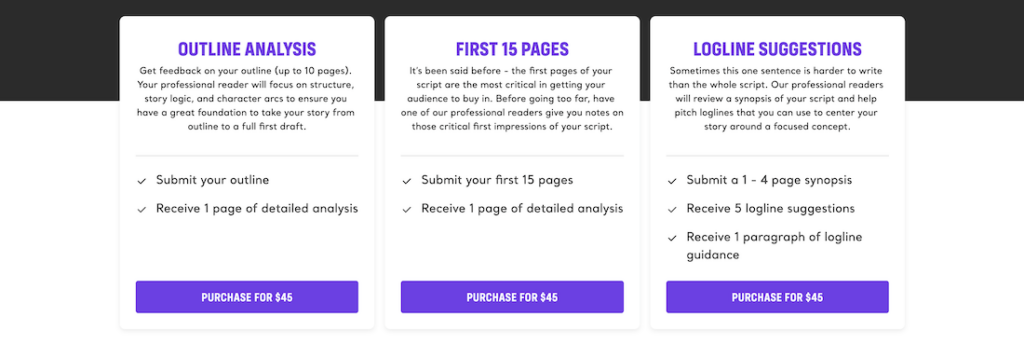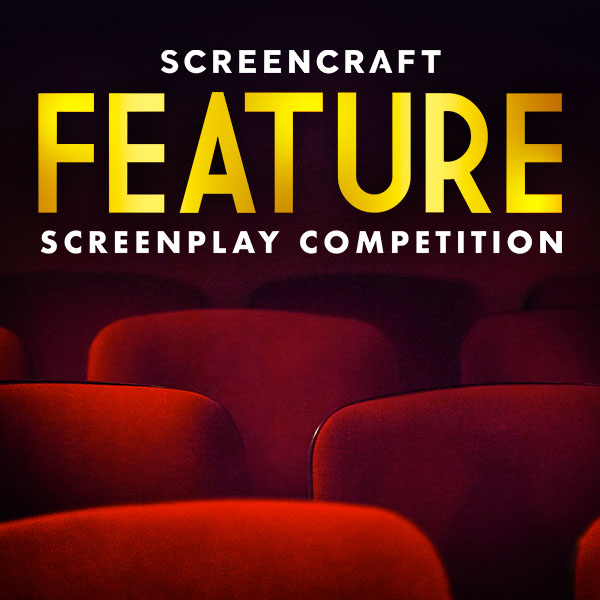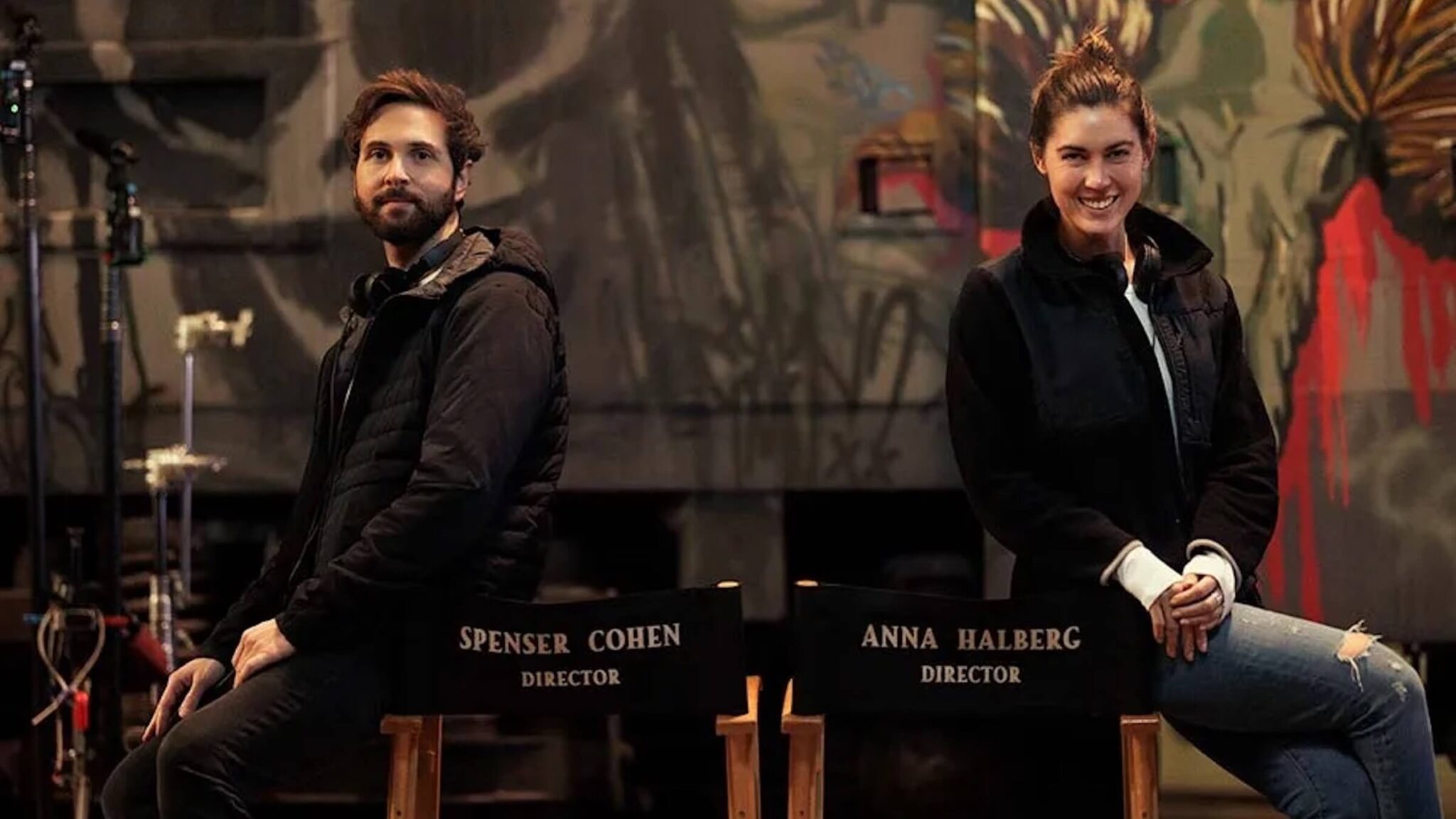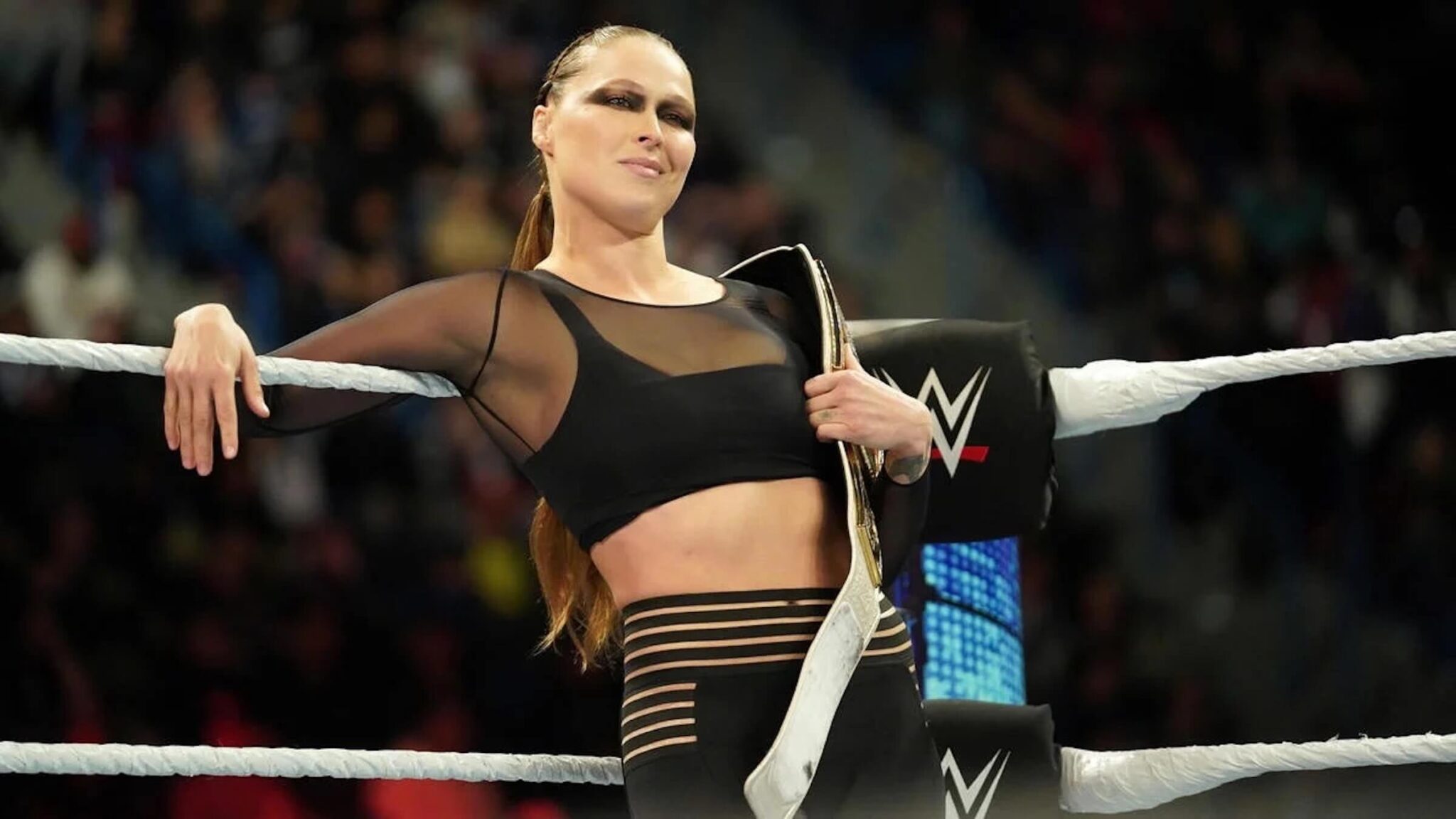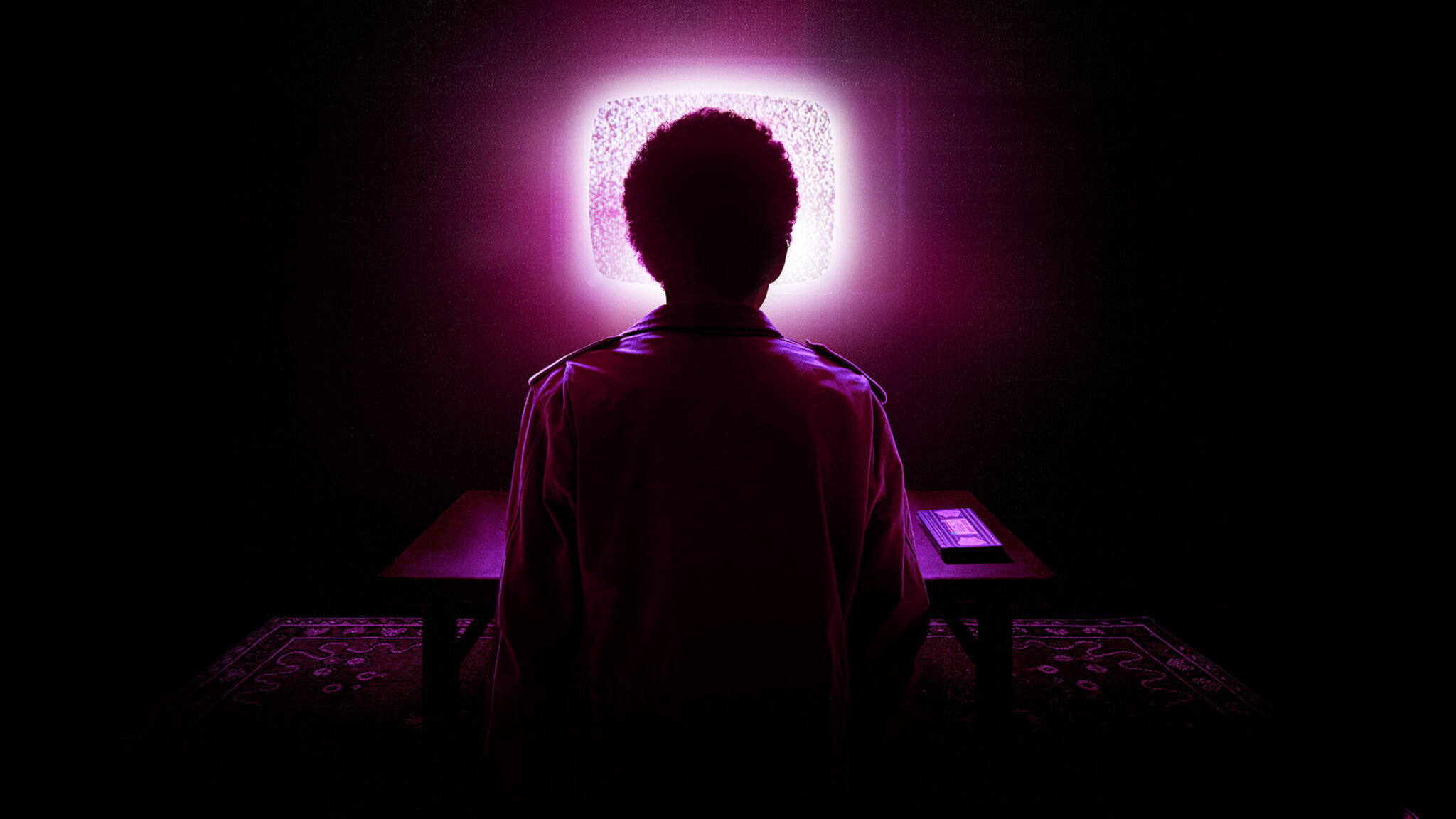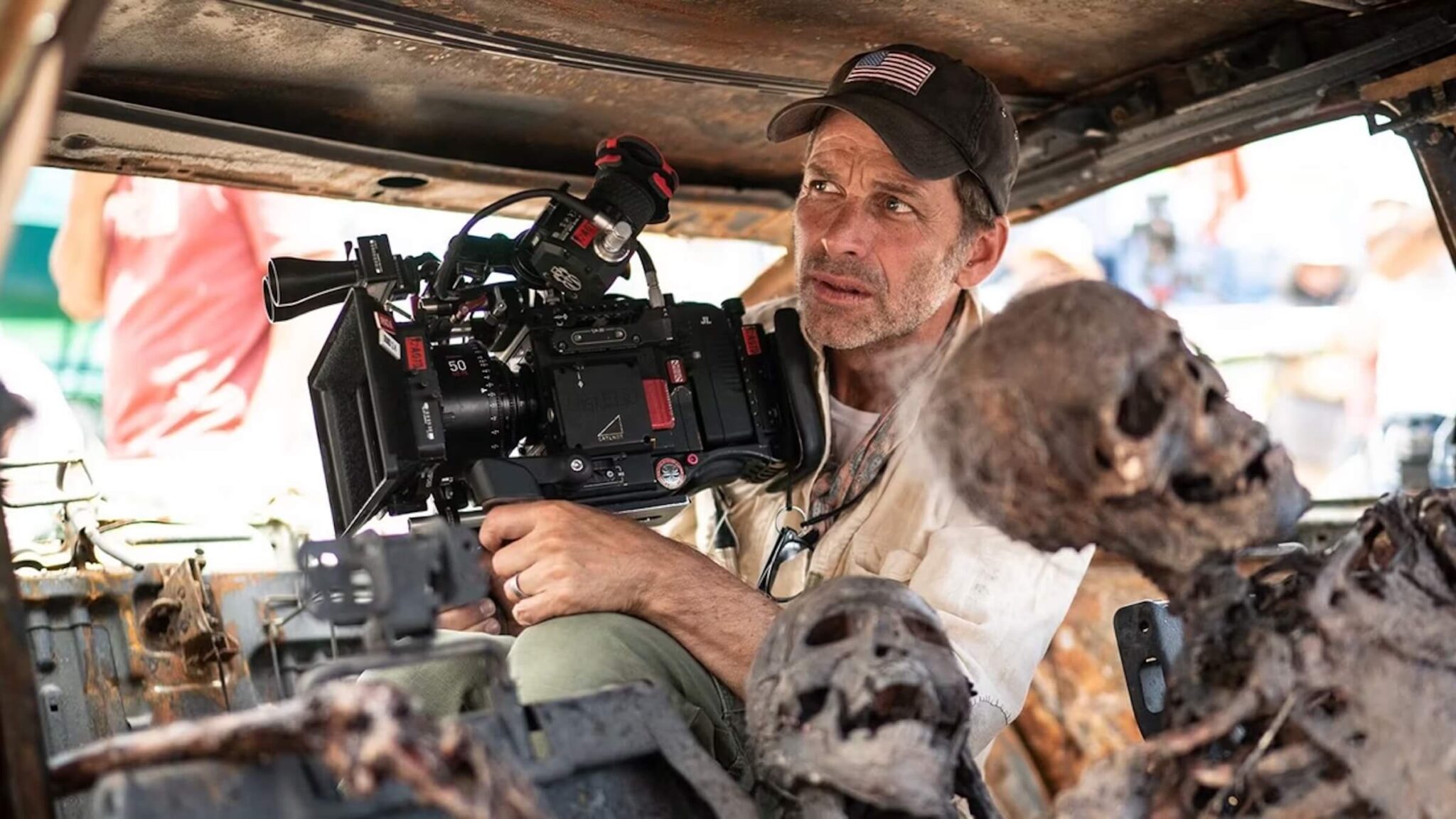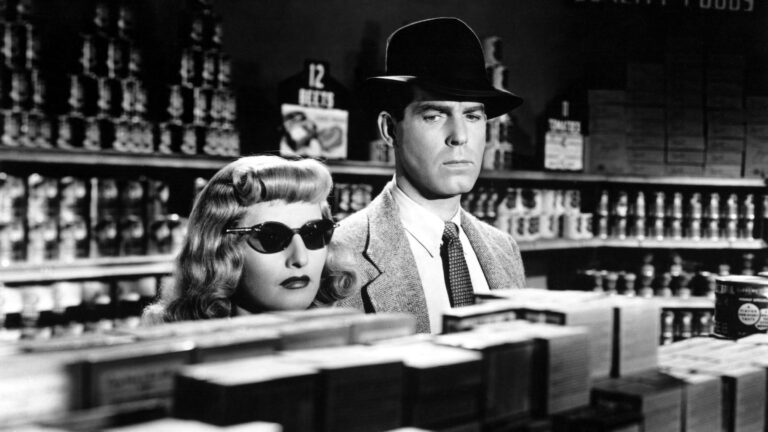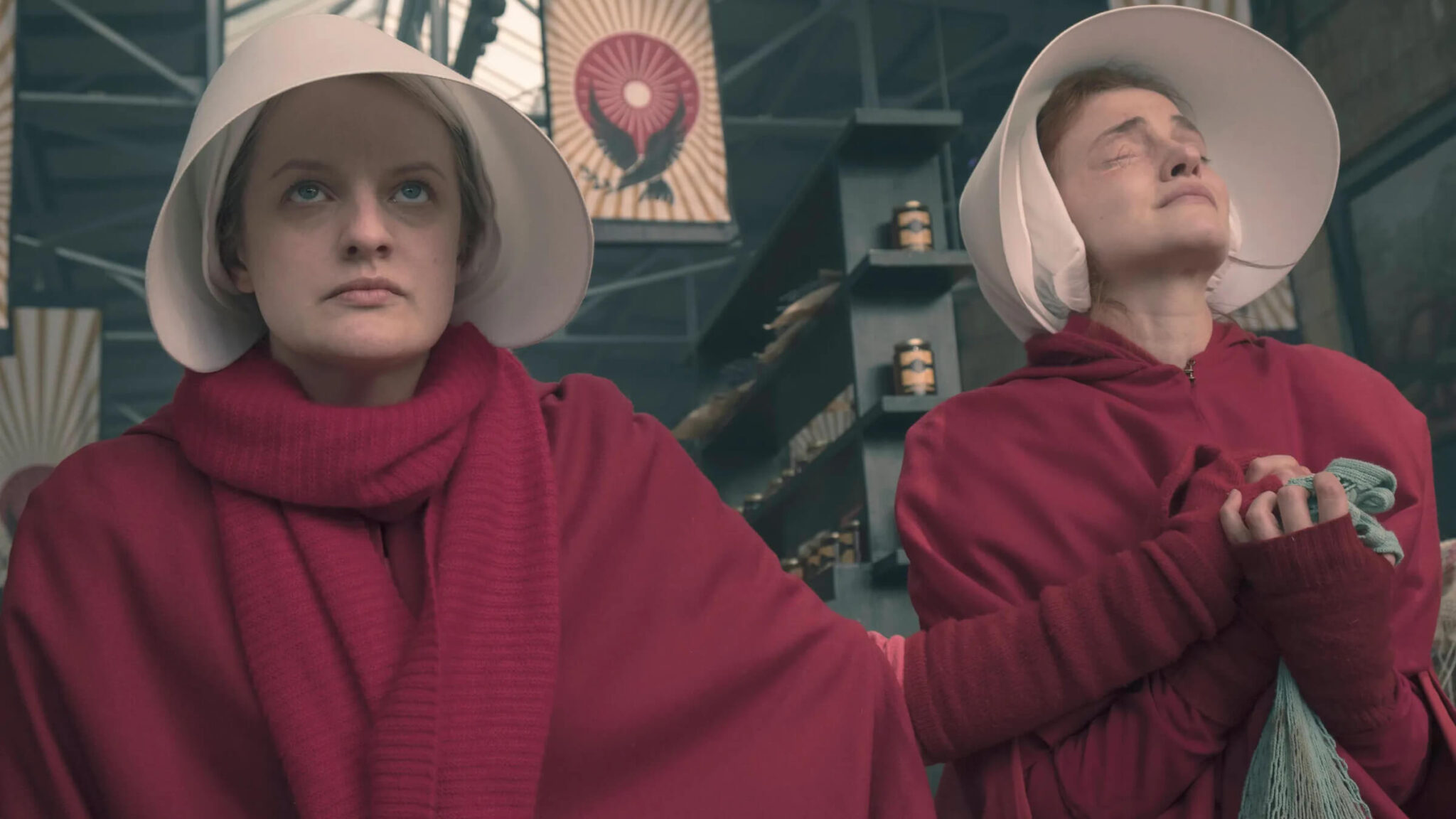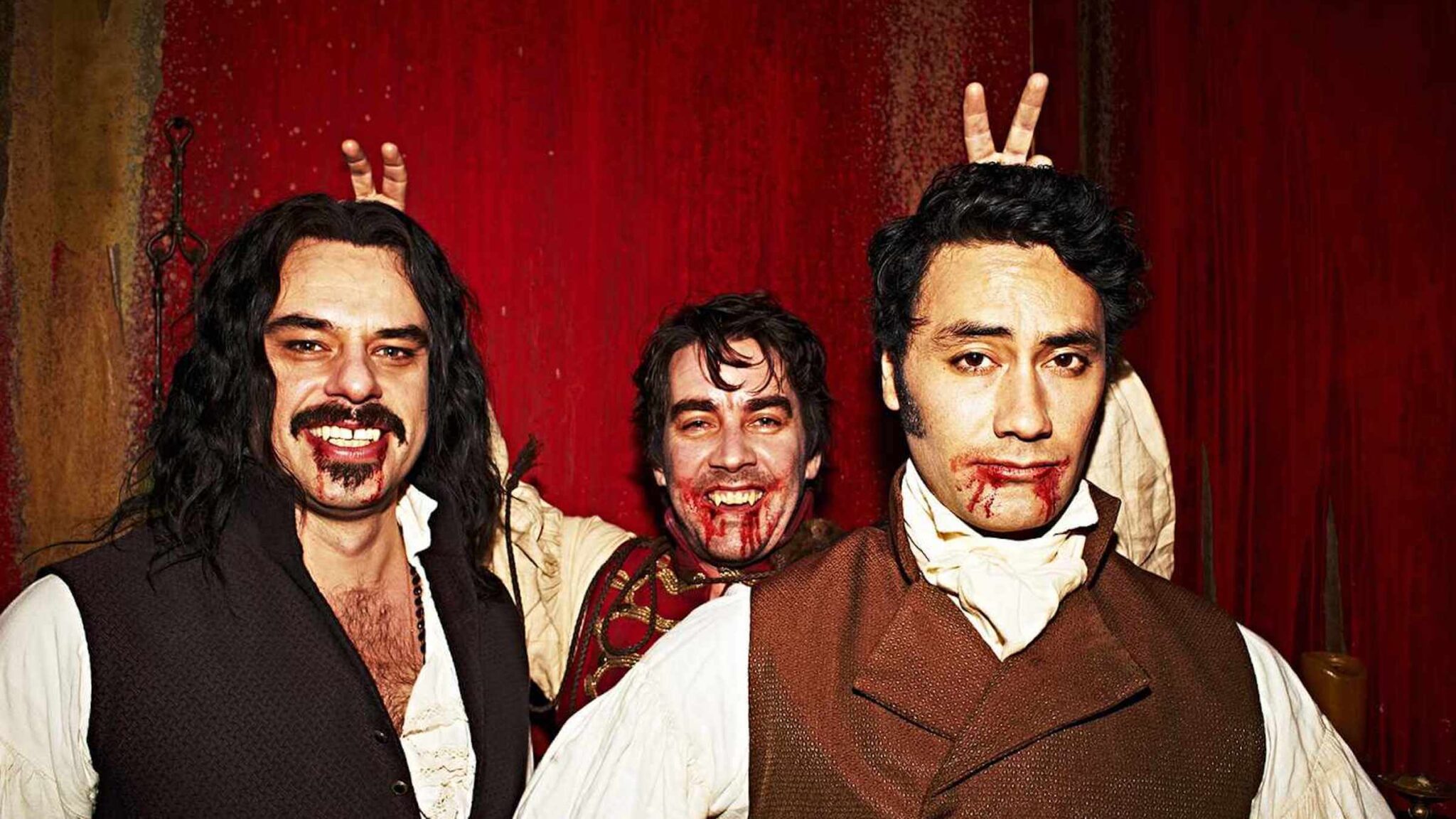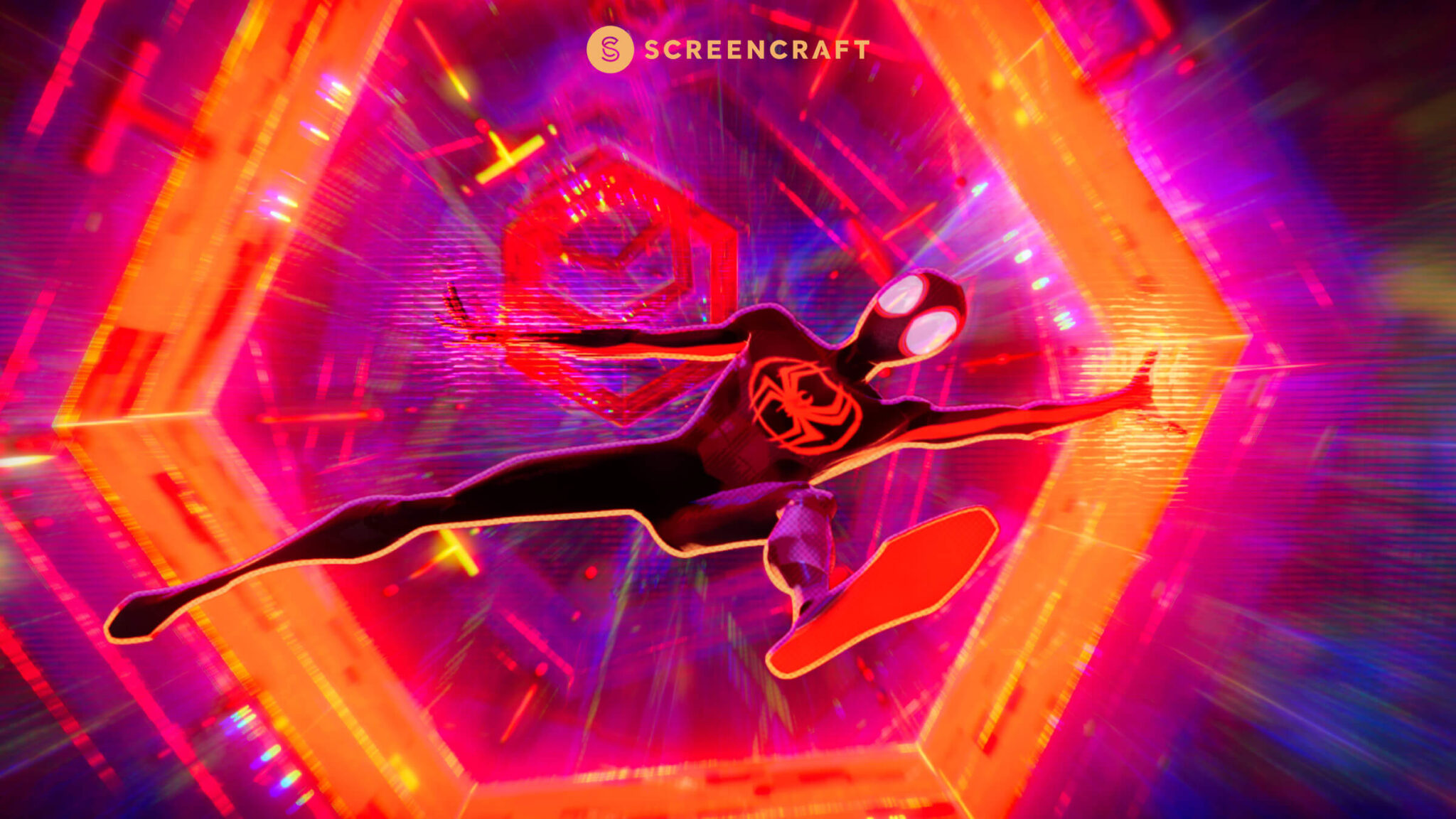The Power of Genre-Blending Screenplays

The journey of a spec script screenwriter is all about creating opportunities. Those opportunities are your spec scripts. But your spec script needs to stand out amongst the thousands of other screenplays in the market if you want to gain any traction as a screenwriter. Diamonds in the rough aren't enough for Hollywood. Agents, managers, development executives, and producers need to find that perfect diamond within the stack of diamonds that managed to make it through the Hollywood filtration system. And one of the best ways to stand out is with a genre-blending screenplay.
Unfortunately, there's no secret formula to help you create a desirable screenplay in the industry power players' eyes. But there are proven methods that have worked. And to understand what that means, you have to learn a little bit more about genre, first. Because before you go breaking (or bending) the rules of genre screenwriting, it helps to understand what those rules are.
Watch the full live stream panel to understand the power of blending genre. But if you don't have time for the full panel, here are some of the biggest takeaways from the talk and a look at some of the most popular genres for screenwriters today.
Table of Contents
- What does "genre" mean?
- 9 most common film genres and how to write each one
- Action genre conventions
- Adventure genre tropes
- How to write comedy genre scripts
- Writing crime genre screenplays
- Drama genre scripts
- Fantasy screenplay genre
- Science fiction genre screenwriting
- Horror genre filmmaking
- How to write a thriller
- How to write an original genre-blending screenplay
- Hollywood loves blended demographics
- Knowing when to play genre jazz
- The purpose of blending genre is balance
- The power of genre-blending screenplays
What does "genre" mean?
A genre is any stylistic category in literature (or film) that follows specific conventions. And while that seems like a really broad definition, it's actually pretty specific. All you need to know about genre is that each genre has its own rules. That's it. Horror genres have certain tropes. Rom-coms have others. Neither is better or worse than the other, they're simply elements that help screenwriters (and audiences) identify and categorize films and the expectations associated with those types of films.
That's not to say that every film in a genre is the same. Far from it. The old adage holds true — rules are meant to be broken. To help you do that, here's a quick look at nine of the most common film genres and how to write genre scripts for each.
Read More:What Screenwriters Are Up Against in Every Genre!
An easier way to think about genre
Beyond the definitions and conventions of "genre" (and all the sub-genres that accompany them) lies a single, easy-to-grasp alternative definition.
Genre is the audience you're trying to serve
Above all the craft and conventions, film genres are really just about the audience. That's it. No matter what else happens in genre screenplay, you have to meet an audience's expectations. Period. It's up to you as the screenwriter to establish and deliver on those expectations. And each genre comes with its own rules.
Every movie genre exists because there is an audience and demographic that wants to watch it. Westerns, rom-coms, and B-rated campy thrillers are all precious to specific groups of people. They know and cherish their favorites for the same reason that larger audiences gravitate towards the more popular comedies, action flicks, and dramas. They entertain.
That's it. They deliver on expectations and entertain. That's all any genre film ever has to do. And studio execs and agents know that.
9 most common film genres and how to write each one
Conventional plots, plot devices, character-types, and story arcs are the standard ingredients for every genre screenplay. These are the building blocks of a script or movie that audiences expect when they walk into that theater or click play on their streaming device. It's like a chocolate chip cookie. When you grab one, you know more or less what you're getting when you take a bite. Audiences — and executives — have a list of ingredients that they expect to see in certain genre films. So if you want to sell anything at the Hollywood bake sale, you have to know what people are buying.
Here's a (quick) rundown of the most common conventions of each screenplay genre. If you plan to blend any of these genres together into something new, it pays to be aware of these common principles.
Action genre conventions
Most action movies call for big action sequences. Explosions, car chases, gunfights, hand-to-hand combat, and exciting stunts. There's a reason that Tom Cruise runs in every single movie you've ever seen him in. He does a lot of action movies.
Most of the time, an action script's central plot comes second to large or dramatic action set pieces and high-octane thrills that audiences expect. Again, not every action film is the same, but most action movies have at least some adrenaline-inducing scenes. If you're writing an action screenplay, make sure you include a few iconic action moments.
Read More: 75 Action Scripts You Can Download Right Now
Adventure genre tropes
Adventure movies are best defined as action movies set within an exotic location. That one element — location — is really all that separates action from adventure. Adventure movies have to go beyond an otherwise anonymous big city or small town. They have to (literally) transport audiences to someplace new, and preferably exciting. If your protagonist travels to a new world, or many worlds, to attain what they so desire, you're not writing an action script. You've stepped into the wide world of adventure.
Make sure to brand your action script accordingly with an adventure-themed logline to set the proper expectations in your next pitch meeting. Focusing on related genres or even subgenres like this can help narrow your competition down and increase interest from niche production companies, studios, and agents. Remember, genre is all about setting and meeting expectations. Cater to specific audiences and you'll be surprised at the interest a good script can generate.
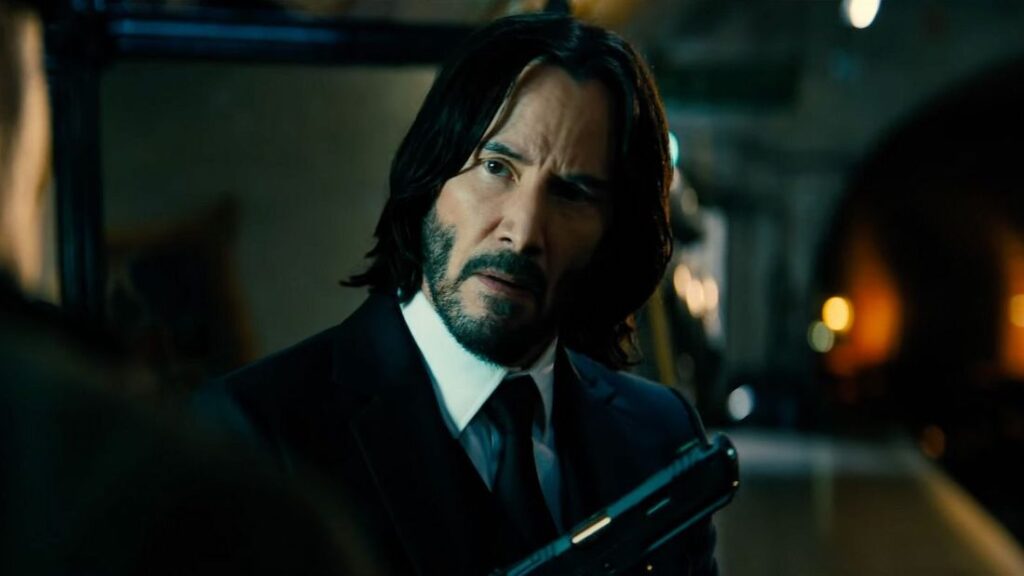
Keanu Reeves in 'John Wick Chapter 4'
How to write comedy genre scripts
We all know a comedy when we see one. Why? Because comedy scripts have plots that are often light-hearted and are written solely to make audiences laugh. It doesn't have to be more complicated than that.
You can achieve this comedic effect by exaggerating scenes or situations (farce), playing with language (puns and wit), action (pratfalls and physical comedy), relationships (buddy comedies), and just plain funny, well-written comedic characters. Honestly, comedy is the broadest film genre. Anything can be a comedy, as long as it's funny. And while that sounds easy, writing good comedy genre screenplays is a lot harder than it looks.
Try to hone your craft in a narrow style or form of comedy and find your niche. As you'll see again and again in this list, specificity and attention to detail make all the difference when it comes to genre screenwriting and genre-blending screenplays.
Writing crime genre screenplays
Crime movies are focused primarily on one thing — characters. This can be the gangsters and criminals planning an elaborate heist. It can also be the aging cop and renegade partner tracking down a group of international terrorists. The point is, crime genre films are focused on the tension and interaction of characters with opposing goals. The best crime genres are character studies that go beyond flat two-dimensional storytelling to discover the person underneath the badge or the mask.
Keep your crime genre screenplay focused on the people in the story — not just the crimes — and you'll uncover a never-ending wealth of stories to tell. Bank robberies, heists, Mafia betrayals, and true crime stories are just the tip of the iceberg in this complex and evolving cinematic genre.
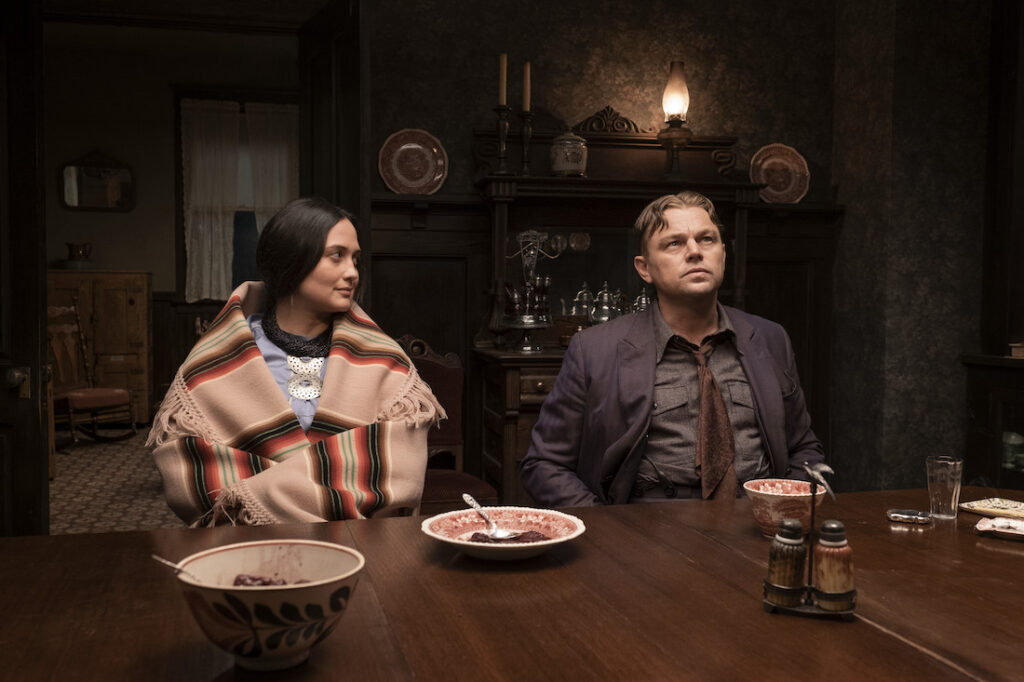
Lily Gladstone and Leonardo DiCaprio in 'Killers of the Flower Moon'
Drama genre scripts
Dramas are focused on showcasing broad and emotional story and character arcs. They portray real-life situations, character types, and extreme scenarios, exploring the struggle of being human. Like comedy, drama is a purposely large category of genre storytelling, precisely because it encompasses the other half of human emotions. There's a reason that the symbol of classical Greek theater was the dual masks of Comedy and Tragedy. Drama is simply another way to express the depth and complexity of the human experience. That also makes drama particularly rife with genre-blending opportunities.
Find a way to tell your dramatic story and you'll most likely discover another genre hiding underneath the larger "drama" umbrella.
Fantasy screenplay genre
Like the Action and Adventure genres, fantasy genre screenplays typically use familiar elements to tell a stylized story. Often this means magic or other supernatural elements as a main plot element, theme, or setting. Many movies of this genre take place in imaginary worlds where magic and magical creatures are common.
Read More: 6 Screenwriting Tips from Juel Taylor's ‘They Cloned Tyrone’
Science fiction genre screenwriting
Science fiction movies are often misidentified. True science fiction movies are movies that involve speculations based on current or future science and technology. Some people even refer to this specification as "Hard" or "Soft" science fiction. Think about the difference between The Martian and Star Wars. Sure, Star Wars might seem like science fiction — it has spaceships and thousands of exotic alien worlds — but once you put Star Wars under the scrutiny of the science fiction genre lens you quickly see that it's simply a fantasy adventure script dressed up in science fiction clothing.
Elements like "The Force" push it out of the science fiction genre entirely (even with midichlorians). At best, Star Wars is "soft" science fiction.
The key element for a science fiction script is that it must speculate on the technology and ideas of current, future, and theoretical science. Good science fiction elaborates on that speculation with future technology and even some application of current scientific theories. That specificity is what separates Star Trek from Star Wars. Because Star Trek, while fantastic, has at least some speculation on the application and design of future technology-based (loosely) in the ideals of science.

Timothée Chalamet in 'Dune'
Horror genre filmmaking
Horror movies have been popular since the dawn of cinema. And that's because, when done right, horror genre films can tap into our deepest darkest fears. Horror is perhaps the most visceral genre with the unique ability to make audiences gasp, scream, cower, and cry. Horror movies even have the ability to mentally and physically impact people for years after they've seen a scary movie.
That's a powerful genre. And horror screenplays accomplish this feat through the use of several tried and true tropes and conventions. Here are the most common horror genre tropes to incorporate in your next horror script:
- The unknown
- Anticipation
- Jump scares
- Chase and pursuit
- Voyeurs
- Disfiguration
- Phobias
- Scary locations
- Monsters
Employ these (and hundreds of other classic horror elements) to craft your own unique version of this powerful film genre.
How to write a thriller
The two key elements of any great thriller are anticipation and suspense. It's all about tension and release. Thrillers keep audiences on the edge of their seats because the story is full of constant twists and turns. True masters of the thriller genre know how to play with narrative arcs and tension. No other genre's protagonist suffers more than the one found in a great thriller.
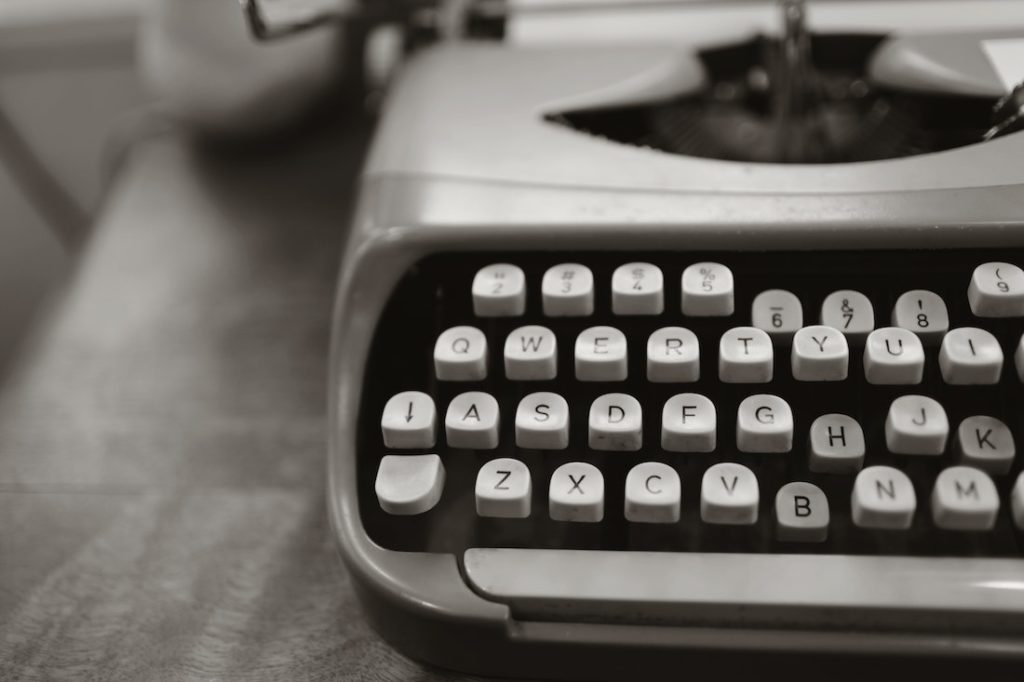
How to write an original genre-blending screenplay
The trouble with following genre trends is that you never want to write a conventional screenplay. Hollywood is flooded with them. So beyond creating a purely original concept — which is very difficult to come by these days — screenwriters have the ability to play with genres by blending them together.
- Horror Comedies
- Dramedies
- Sc-Fi Thrillers
- Crime Dramas
- Fantasy Comedies
These hybrids let screenwriters separate themselves from the crowd of generic screenplays in the Hollywood spec market mill. They don't reinvent the process of storytelling with all new ingredients. They simply combine seemingly disparate elements — like zombies and romance (yes, "zom-coms" are a thing) to create something new. And just like chocolate chip cookies with a touch of caramel, people love the taste of something new mixed with the warmth and comfort of something they love.
Hollywood loves blended demographics
The truth is that Hollywood is in the business of making money. And they do that (largely) by giving people more of what they crave. Entertainment. But that doesn't mean that Hollywood is content to follow the same blueprint over and over again. They're open to new trends. Why? Because new trends can make a lot of money.
Enter the concept of genre-blending.
- Everything Everywhere All At Once blended sci-fi, adventure, and kung fu to create a heart-warming dramedy.
- Cocaine Bear blended the horror and comedy of a black bear going on a cocaine-fueled rampage through the forest.
- Back to the Future blended science fiction time travel with comedy and adventure.
- Alien blended the horror of a monster flick with brilliant science-fiction landscapes and technology.
- Pan's Labyrinth wonderfully blended war drama with fantasy and horror.
When you blend genres, you're bringing in more audiences to the same film. When your script showcases the ability to jump genres for a larger box office, Hollywood pays attention.
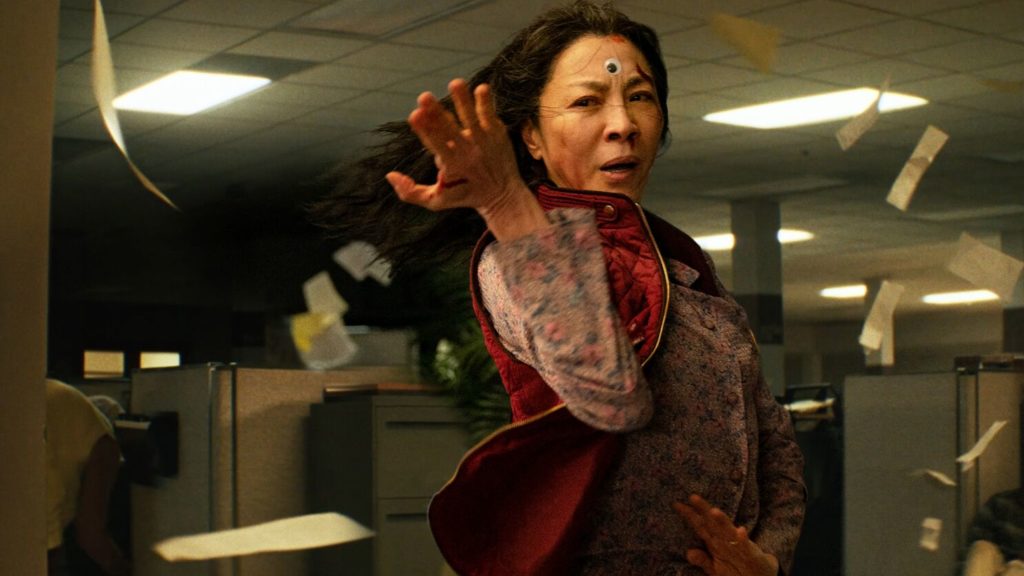
Michelle Yeoh as Evelyn in 'Everything Everywhere All At Once'
Knowing when to play genre jazz
Audiences bring their own expectations to each genre film they watch. That means you, as a screenwriter, need to know what those expectations are. You need to know the general conventions of the genres you're tackling because the audience will expect them. You need to hit those familiar notes because if you don't, people leave disappointed.
But it's important to add your own notes to a genre script. In fact, successful spec screenwriters riff and play with genre like cinematic jazz. That means they're able to absorb and master the baselines of each genre, but the real magic is how they surprise audiences and subvert their expectations with genre mashups. If you can blend genres in a way that no one else has, you will make an impact in Hollywood.
The purpose of blending genre is balance
Each genre has its own tone. When you start blending things, the whole purpose of a blend is balance. The most successful genre-blending screenplays have a balance where you can deliver both genres in near-equal fashion. You want to be able to please each audience. But balance doesn't mean that you cater to the lowest common denominator.
That balance that you master between two or more genres blended into one creates its own tone. And the beauty of that is you manage to create something original by using the conventions that multiple audiences are expecting — only they are experiencing those conventions in a new and original tasty blend. And that is a powerful experience that Hollywood wants to create, buy, and sell.
The power of genre-blending screenplays
Spec screenwriting is about creating opportunities. Creating the best possible opportunity for yourself, Hollywood, and the audience takes mastery of craft and convention mixed with the courage to combine genres in new and exciting ways. Because that's how the industry moves forward. Genre-blending scripts serve:
- Yourself by adding a creative and powerful project that appeals to both Hollywood and audiences
- Hollywood by giving them what they crave most — money-making entertainment
- Audiences by creating a unique hybrid experience of their favorite genres

And just because a genre-blended screenplay services you, Hollywood, and audiences in those ways, doesn't mean that you're creating something just for the money or mass appeal. You can play that jazz and inject complex and intriguing characters and storylines into those hybrids and make a living as a working screenwriter at the same time. There's no more powerful, cathartic, and successful screenplay than a genre-blended one.
Hollywood is waiting. It's up to you to give them what they didn't even know they always wanted.
---
What original genre blends haven't we seen in movies and television? Have we seen a Romantic Horror Movie, a Crime Drama in Space, or a Slapstick Comedy-Thriller? What genre blends can you conjure to get you and your writing noticed? Share your ideas in the comments or submit your script to one of these genre-specific screenwriting competitions to see if your script is ready for the big screen.
Ken Miyamoto has worked in the film industry for nearly two decades, most notably as a studio liaison for Sony Studios and then as a script reader and story analyst for Sony Pictures.
He has many studio meetings under his belt as a produced screenwriter, meeting with the likes of Sony, Dreamworks, Universal, Disney, Warner Brothers, as well as many production and management companies. He has had a previous development deal with Lionsgate, as well as multiple writing assignments, including the produced miniseries Blackout, starring Anne Heche, Sean Patrick Flanery, Billy Zane, James Brolin, Haylie Duff, Brian Bloom, Eric La Salle, and Bruce Boxleitner, and the feature thriller Hunter’s Creed starring Duane “Dog the Bounty Hunter” Chapman, Wesley Truman Daniel, Mickey O’Sullivan, John Victor Allen, and James Errico. Follow Ken on Twitter @KenMovies
CHECK OUT OUR PREPARATION NOTES SO YOU START YOUR STORY OFF ON THE RIGHT TRACK!
Tags
Get Our Screenwriting Newsletter!
Get weekly writing inspiration delivered to your inbox - including industry news, popular articles, and more!


